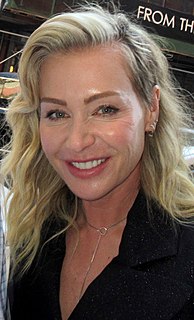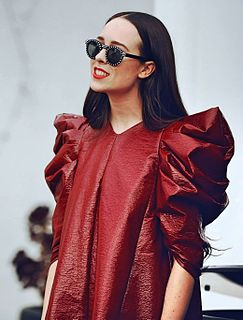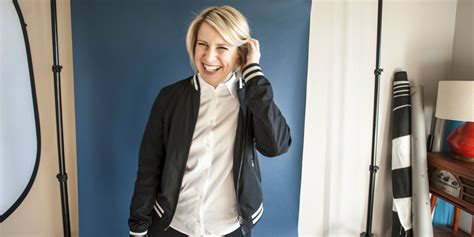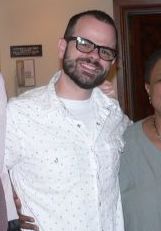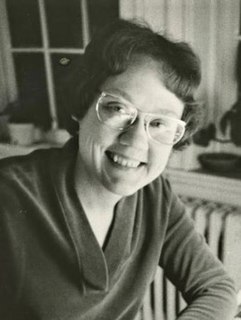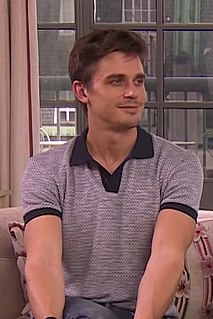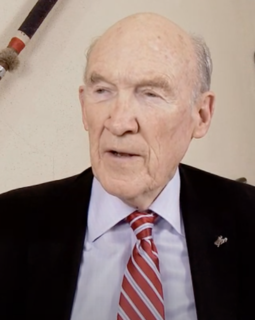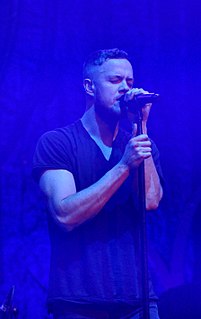A Quote by Portia de Rossi
I've had so many interviews where the last question is, Are you gay? I had to find very creative ways to say that I was gay, but that I wasn't going to talk about it.
Related Quotes
One time I was doing an interview for a gay magazine and halfway through the journalist found out I wasn't gay. He said, 'Sorry, I can't continue the interview.' Because they only had gay public figures in their magazine. I felt so crestfallen. I wanted to tell him: but I play fundraisers for gay marriage! I'd rather my kids were gay than straight!'
I've always been surprised when a straight guy likes me. It's just been like my whole life has been kinda like that. I definitely felt like when I started writing music, it wasn't writing for a gay audience at all. I was just writing for me. But what I say whenever I get this question is my best friends have always been gay, I've always been, as a person, just accepted by the gay community, and celebrated and had the best nights of my life at gay clubs. Always had a fashion sense usually with drag and I don't know. That's just kind of my people. That's just kind of where I fit in.
I had a lot of gay friends and even had some congregation members who were gay, and I just wasn't sure where I stood. In my heart, I was like, "How can I condemn these people for their love of one another?" I started looking deeper into the Bible and studying and then I went to a gay-affirming church. It all came together at one point.
"Let's say we discover the gene that says the kid's gonna be gay. How many parents, if they knew before the kid was gonna be born, [that he] was gonna be gay, they would take the pregnancy to term? Well, you don't know but let's say half of them said, "Oh, no, I don't wanna do that to a kid." [Then the] gay community finds out about this. The gay community would do the fastest 180 and become pro-life faster than anybody you've ever seen. ... They'd be so against abortion if it was discovered that you could abort what you knew were gonna be gay babies."
I think I was probably looking for gay role models when I was younger, before I even knew or thought I was gay. I didn't really make the connection that they were gay, but I felt drawn to them because they were going against the grain, and I knew there was something that they had that everybody else didn't have. It was an edge.
As a teenager, I had to struggle alone to learn about myself and what it meant to be gay. Now for [48] years I've had the satisfaction of working with other gay people all across the country to get the bigots off our backs, to oil the closet door hinges, to change prejudiced hearts and minds, and to show that gay love is good for us and for the rest of the world too. It's hard work---but it's vital, and it's gratifying, and it's often fun!
For the most part, it was never assumed that I was gay, and I've had people be sort of surprised that I was gay or act apologetic like they didn't know, which would just make me really uncomfortable. And I never had shame for it, but I never felt like introducing myself as, 'I'm Antoni. I'm gay. How are you?'
Since 1993, I have had the rich satisfaction of knowing and working with many openly gay and lesbian Americans, and I have come to realize that 'gay' is an artificial category when it comes to measuring a man or woman's on-the-job performance or commitment to shared goals. It says little about the person.
